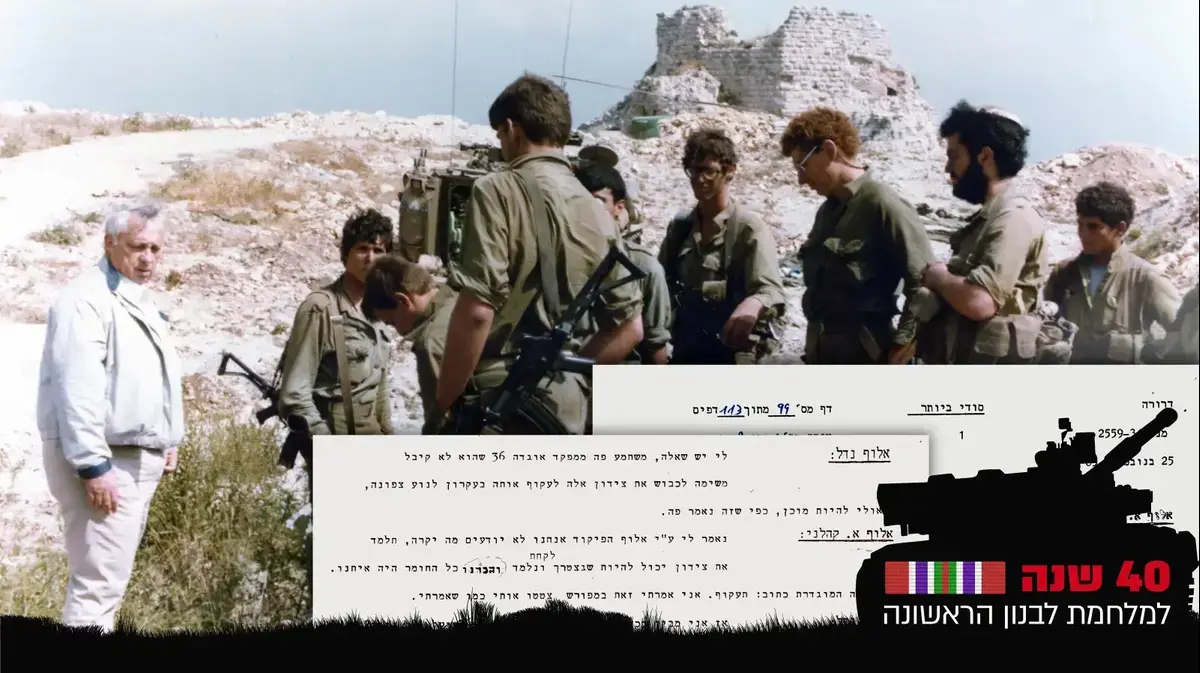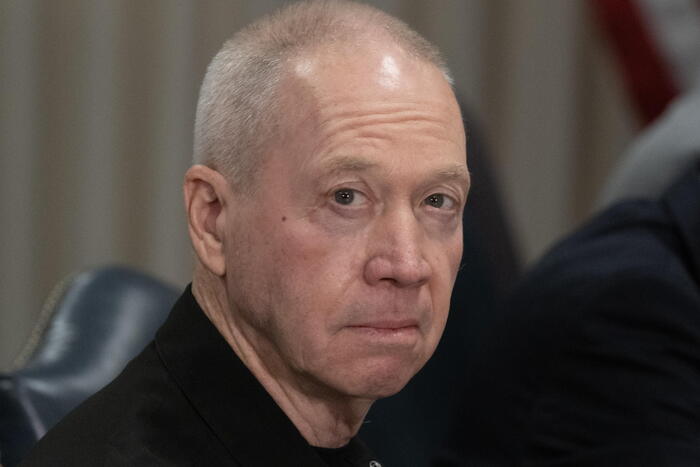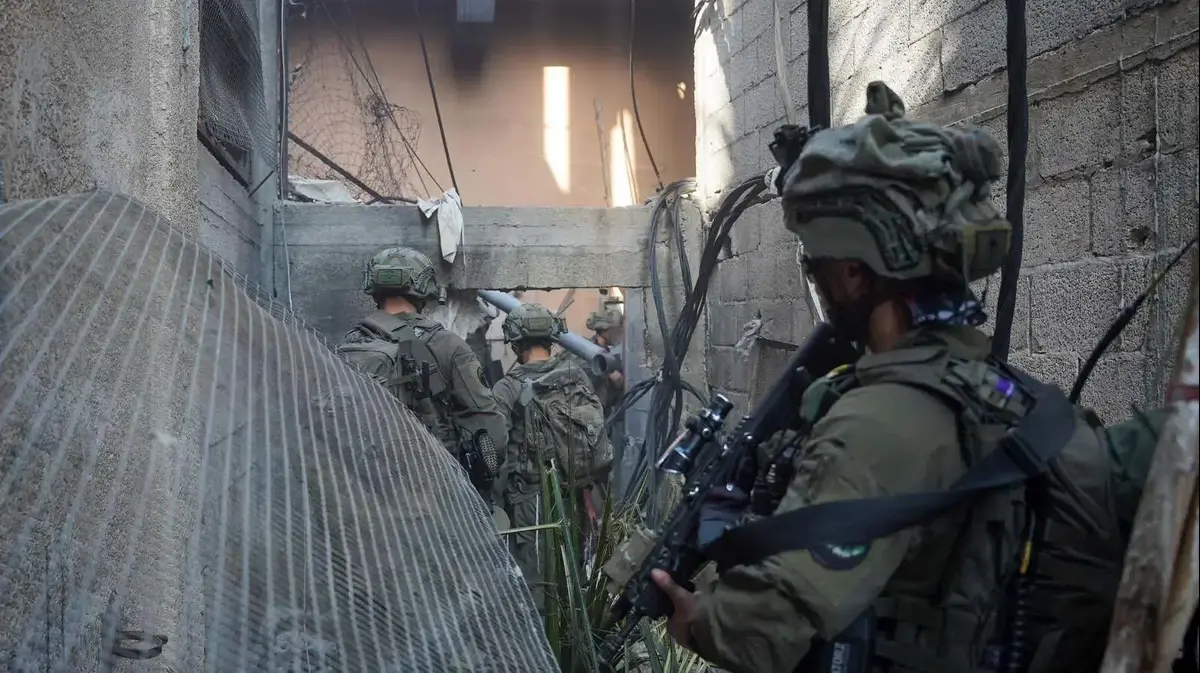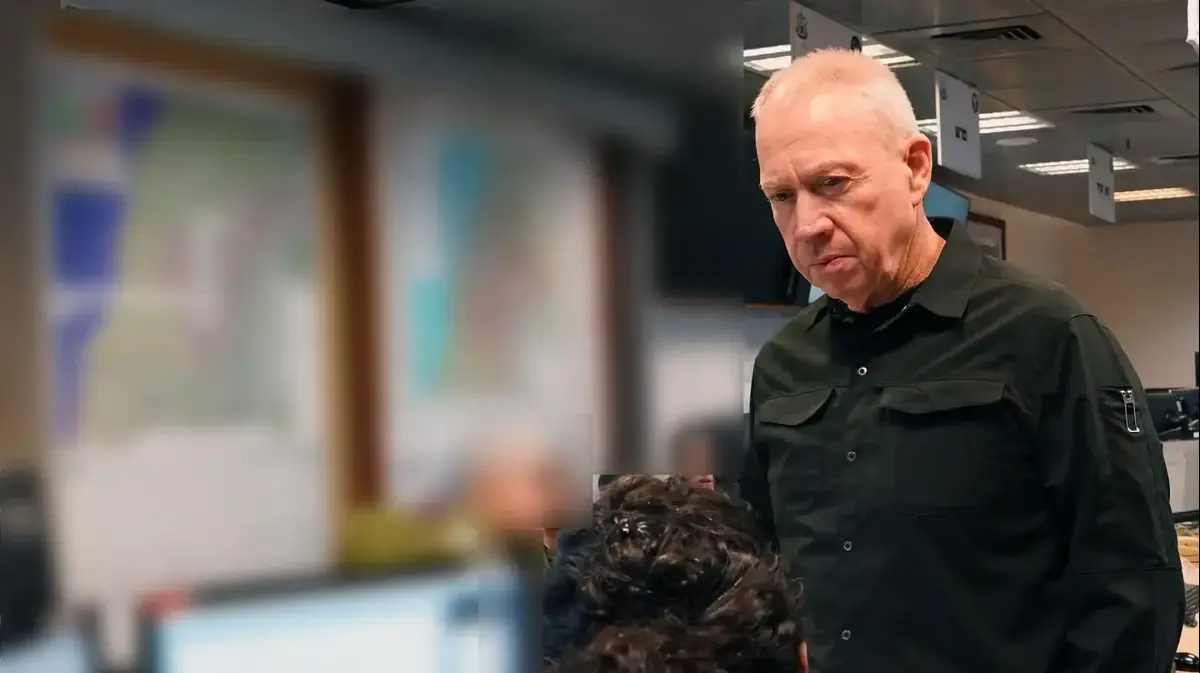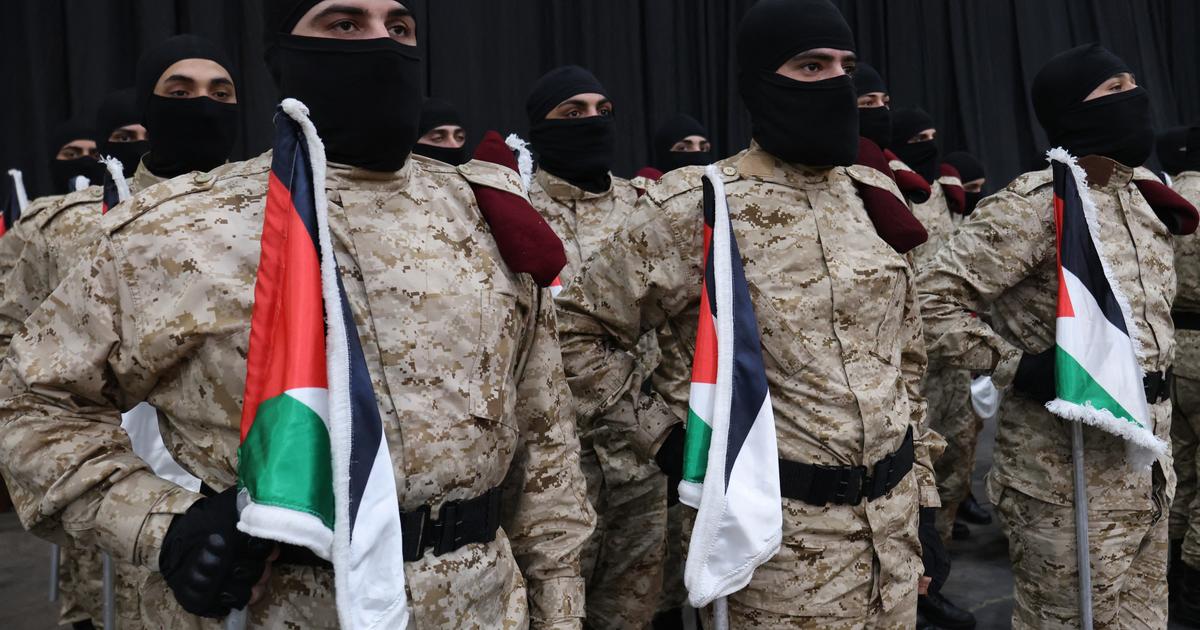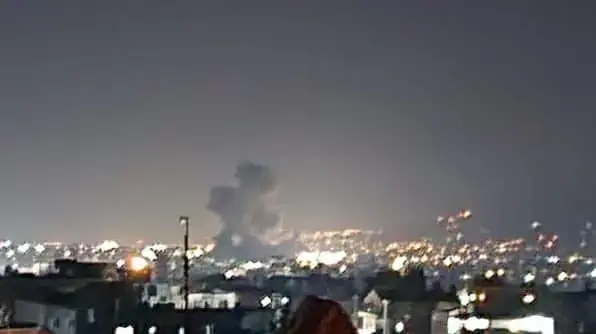The first Lebanese documents are revealed: the fateful meeting in the Northern Command and the investigation of the Battle of Beaufort
40 years since the outbreak of the war, the IDF archive reveals minutes of major discussions from the time of the war.
Sharon: "A little absent, no destination has been set at the moment"
Eli Ashkenazi
22/06/2022
Wednesday, 22 June 2022, 14:09 Updated: 15:57
Share on Facebook
Share on WhatsApp
Share on Twitter
Share on Email
Share on general
Comments
Comments
In the video: Black-and-white documentation from the first Lebanon war, held especially to mark the 40th anniversary of the Galilee Peace War (Photo: Ministry of Defense spokeswoman)
Forty years since the outbreak of the First Lebanon War, or in its official name - the Peace of the Galilee system - IDF archives in the Ministry of Defense continue to reveal minutes of major discussions held during the war. June 6, 1982.
"Assessment of the situation - SLG is rolling", as defined by the discussion convened by the Minister of Defense, Ariel Sharon and Chief of Staff Rafael Eitan, shortly after the outbreak of hostilities. And operation trends are not clearly and unambiguously defined.
The discussion was also attended by the Commander of the Northern Command, Amir Drori, the head of the AGM, Yehoshua Sagi, the head of the Operations Division at the General Staff, Brigadier General Uri Sagi, the Intelligence Officer of the Northern Command, Col. Moshe Zurich, and another participant defined as "Dover."
"Did they have machine guns?".
Sharon and Begin on their visit to Beaufort (Photo: IDF Spokesman, IDF Archives at the Ministry of Defense)
The main topic of discussion was the attempt to avoid a confrontation with the Syrian army in the first phase of the operation.
Sharon says the assessment is that the Syrians will open fire on IDF forces.
"This is the only option," he said
.
To do this, he seeks "flipping as fast as possible, it is built on movements, on continuing movement along the coast, deepening the movement. And on deepening the movement in the field in the area of Mount Jazin to the north."
Soldiers on the Beaufort Fortress (Photo: Official website, IDF Archives at the Ministry of Defense)
The next time he repeats this guideline it can be understood that this is a general guideline, without going into details and without setting clear goals.
In addition, the Minister of Defense wants to make sure that in the event of a future confrontation with the Syrians, this will reach a government decision: "Now, look ... since we are constantly against our interests, this is not written here, the government decision ... "The only solution we see is a deeper entry into the territory. No goals are being set at the moment. It's simple, moving forward to see how this thing will affect the Syrians here, is this thing clear?"
During the discussion, the head of the Armed Forces, Maj. Gen. Sagi, says that "this is a battle that lacks intention." Defense Minister Sharon replies: Defense Minister: "Well, what I am asking you to prepare for me because of the cabinet meeting today is a map, that I can show exactly on which axes are moving north, to flank the danger."
: "You will get a clean map, a clean map with a few circles."
Defense Minister Sharon
: "Including where our forces are, at 20:00 in the evening, so I will leave here already at 19:00. Well, that's it, and if it is possible to get the number of casualties tonight as well, fine."
Sharon with soldiers at Beaufort Fortress (Photo: Official website, IDF Archives at the Ministry of Defense)
Shortly after the end of that debate, begins eight miles north of the battlefield for the conquest of Beaufort.
Six Golani Reconnaissance fighters were killed in the same battle, the very existence of which at this stage of the operation provoked question marks and debate within the army.
That battle also spawned the beginning of civil protests against the war in Lebanon.
The six families of those killed claimed that it was a futile war and even went on demonstrations.
Until then, bereaved parents had not dared to express their opinions in such a way.
The parents of the "Beaufort Family", as they were called in a book written by Rubik Rosenthal, changed the Israeli discourse around the subject of bereavement forever.
A visit by Prime Minister Menachem Begin and Defense Minister Sharon to Beaufort, a day after the battle, filmed by a news agency of the Israel Broadcasting Authority, began to create the image that the prime minister was detached and deceived by Defense Minister and Chief of Staff. "Did they [the terrorists] have machine guns?"
The IDF Archives at the Ministry of Defense also publishes today the transcript of the battle investigation that took place five and a half months later, on November 25, 1982. The senior officers participating in the investigation are the Chief of Staff, Division 36 Commander, Avigdor Kahalani, Brigadier General Golani, Gabi Ashkenazi, Golani Reconnaissance Commander Moshe Kaplinsky and Head of the Training Department, Uri Simchoni, who also served as Deputy Commander of the Northern Command
during the war. Ordered not to do so, to go ahead and occupy the Beaufort the next day.Kahalani claims over the years that he has not been updated on the change of mission which means a temporary waiver of the Beaufort conquest.
Sharon with soldiers against the backdrop of the Beaufort Fortress (Photo: Official website, IDF Archives at the Ministry of Defense)
These questions arise throughout the same investigation.
Kahalani explains to the participants that he was in constant contact with Golani Lt. Col. Gabi Ashkenazi, even when he started the attack. "He did not tell me about any special problems he had.
The attack is going well, "
Kahalani recalled. He noted that the attack started late due to delays caused by the schedules already in the morning of that day
.
There was a day plan. "
Kahalani
:" The plan was a day plan, but as soon as they reached a state of night there was a switch, they got off the tools and did it on a plan basis. "
According to
General Drori
, Run north, and purge later. "
Chief of Staff
:"
: "For us, when we changed the plan we entered at 11, 12 (entry into Lebanon that morning, about five hours late, AA) and not according to the original plan. The intention was that he (the Beaufort) would be occupied the next day and that means day Monday morning, with massive air and artillery assistance. "
The AGM officer in Kahalani's division supports his commander's version: "I do not know of such an order that anyone said not to continue fighting, that following the change of entry at 11 a.m., Beaufort would not be taken as a continuum following the fighting.
I do not know of such an order. "
At one point an audience member is angry at the attempt to describe a situation as if the actions he decided on in real time were not known to the command.
"In command all the time they knew where Division 36 was, suddenly they did not know where it was? Did they know about the millimeter where it was. Could it be that someone sitting in the place with air conditioning, with lighting, with an officer working in front of Division 36 did not know where it is?" He spoke angrily, in a description somewhat reminiscent of the criticism of the officers sitting in front of the plasma screens, far from the battle zones 23 years later, in the Second Lebanon War.
Kahlani continued the attack: "(Only) in the morning was it discovered that they had taken the Beaufort? I think it is a shame for our intelligence."
He admitted that it was indeed only in the morning that the number of casualties in the battle was known and this was because in the intensity of the battle, he was not updated on it.
"Gabi barely made a sound of a slaughtered chicken. He was really almost in a position to barely control his voice anymore. He also did not know that Goni was killed," Kahalani said.
"What was burning to attack the Beaufort so fast"
This debate continues and everyone is fortified in their position.
Simchoni repeatedly asks: "What was burning to attack the Beaufort so quickly," emphasizing that "the criticism is not about (Ashkenazi) running fast. He is a commander in the field and he acts like a commander, his job is to run forward and do the fastest and most aggressive he can, and so he He also drove and he did one hundred percent. "
The impression that emerges is that in real time there has been a lack of clarity about the Beaufort occupation mission.
It turns out that the reports of the number of casualties also arrived very late.
Chief of Staff Eitan says that a soldier from the Galani Regiment told him the next day that there were six dead in the battle.
The investigation also describes the battle itself.
Ashkenazi, then deputy commander of the Golani Brigade with the rank of lieutenant colonel, relates: "Kaplan (Moshe Kaplinsky, commander of the Golani Regiment, AA) reported to me that he was wounded.
We're around 7:15 or something, I immediately talked to him.
He informed me that he had been abducted in the chest, it was not clear to him exactly where.
He will detail this, he is at this point because the tanks did not exactly show orientation, moved forward, and led all the force with his APC until he was wounded. A few minutes after Kaplan announced that he was wounded, Battalion 51 at the entrance to 571, was also wounded .
There he kidnapped an RPG in the HQ and he was wounded with his two RPGs.
I decided at this point to do the following: Goni (Hernick), who was the patrol commander two weeks before that, was with me in the ADF.
When he heard there was a standoff, a friend of mine, and we decided he was traveling with me on an escort standard.
I decided he would go down to Beaufort, I mean he would come to Beaufort, replace Kaplan who could not control the business, and take command.
That's really what we did,
And Goni arrived for the patrol.
What I said to Goni, is that he connects with everyone, talks to all the commanders including the HFN (Engineering Company), changes the plan on foot and takes the Beaufort. "
Hernick, who on that day had to be discharged from his regular service, was killed in battle and with him five more of his warriors.
news
Army and Security
Tags
The Lebanon War
The First Lebanon War
Ariel Sharon
Beaufort

